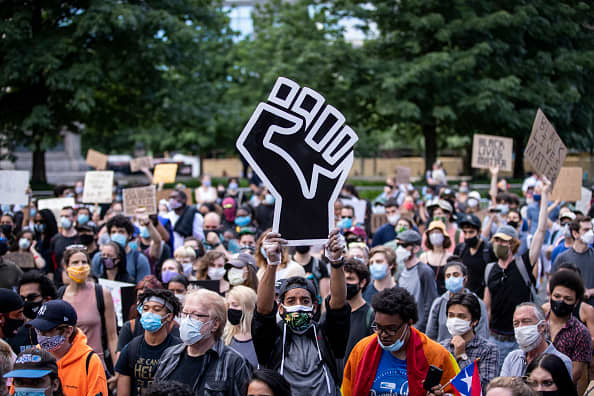IBM Executive Chairman Ginni Rometty told CNBC on Thursday that corporate America has the potential to create long-lasting societal change by advancing the cause of racial equality.
“The private sector has the ability to create a movement, and actually, I think, this could be the greatest mobilization of the private sector for a benefit of society,” Rometty said on “Squawk on the Street.”
Rometty, who stepped down as IBM chief executive earlier this year, has been a staunch advocate for companies to rethink hiring practices to include candidates with diverse backgrounds, including people who haven’t obtained four-year college degrees.
Rometty’s comments Thursday come as the United States experiences renewed calls for racial justice following high-profile killings by White police offices of Black Americans in 2020, including George Floyd in Minneapolis in May.
Activists, customers and even employees have applied pressure and demanded action from companies. With protests at their peak in June, many of the nation’s largest companies responded with pledges to increase diversity in their workforces and commitments to take other steps to close racial disparities in wealth and educational opportunities.
Companies have continued to announce other efforts, such as J.P. Morgan Chase committing $30 billion over five years to address wealth inequality in the U.S., through a combination of loans, investments and philanthropy.
Last month, IBM unveiled a new quantum education and research initiative for historically black colleges and universities that includes a $100 million investment. The company’s current CEO, Arvind Krishna, also is co-chair of an effort announced this summer to hire 100,000 New Yorkers who are from low-income minority neighborhoods by 2030.
Rometty, who was IBM’s first female CEO, on Thursday also touted the work of IBM’s Pathways to Technology initiative, a six-year program for high school students that focuses on the STEM fields — science, technology, engineering and mathematics. Students complete high school requirements while also earing an associate degree and job opportunities through the program, which was founded in 2011.
“With over 300 schools and almost 200,000 kids coming through, this is now going to get extended and we are really going to target at the Black community,” she said. “Economic opportunity, it is the great equalizer for all of this,” she added.
